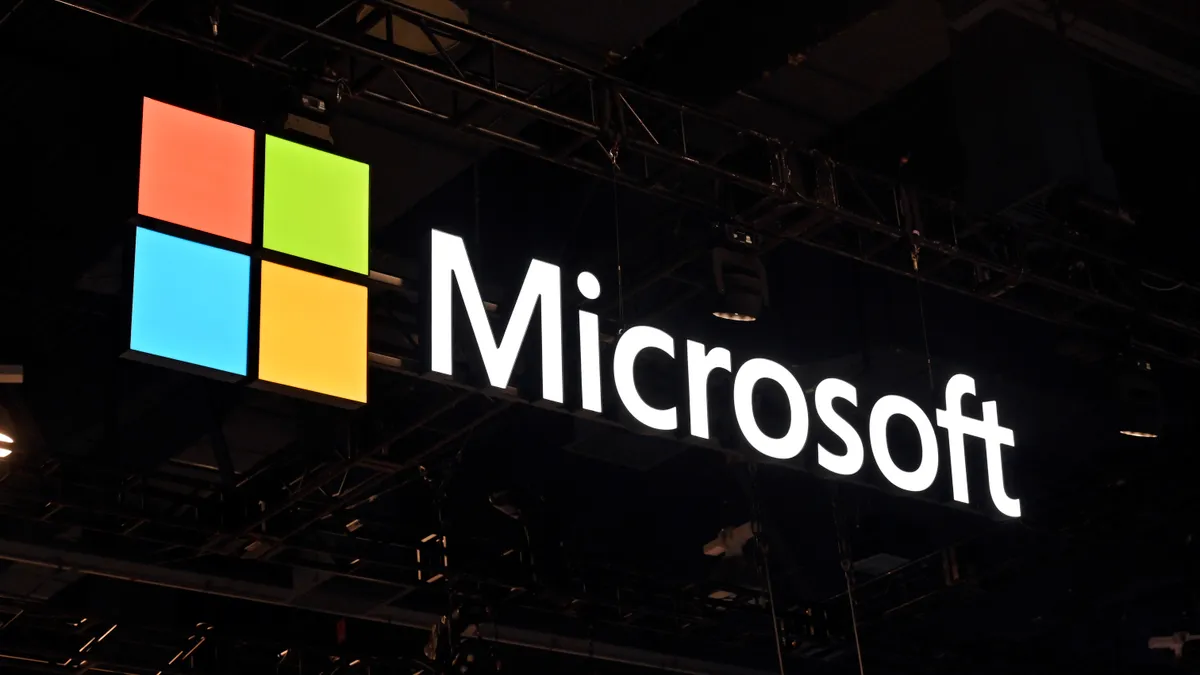Dive Brief:
- The Federal Trade Commission provided no evidence Microsoft’s acquisition of Activision Blizzard would harm the competitiveness of the video game industry, in part because the tech giant said it wouldn’t pull the popular Call of Duty game off rival consoles, Judge Jacqueline Scott Corley of the U.S. District Court for the Northern District of California said in her July 10 ruling dismissing the FTC’s motion for a preliminary injunction.
- “The FTC has not shown a likelihood it will prevail on its claim this particular vertical merger in this specific industry may substantially lessen competition,” Corley said. “To the contrary, the record evidence points to more consumer access to Call of Duty and other Activision content.”
- The decision is the latest win on the matter for Microsoft, which can now go ahead with the deal even if the FTC decides before the end of the week to appeal. Microsoft still faces a challenge in the U.K., but this week’s decision is expected to help it work out a compromise on that front, reports say.
Dive Insight:
The FTC centered its argument on Microsoft potentially pulling Call of Duty off of Sony’s PlayStation gaming console, the industry leader and the main competitor to Microsoft’s Xbox console. It could also be pulled off of other consoles, including Nintendo’s Switch, the agency argued.
But Microsoft executives had said, under testimony and elsewhere, after the deal was announced in January 2022 and it was undergoing Hart-Scott-Rodino premerger review, that the company would commit to keeping the game on rival consoles. That included a 10-year commitment to keep it on Sony’s PlayStation.
“My commitment is, and my testimony is, to use that word, that we will continue to ship Call of – future versions of Call of Duty on Sony’s PlayStation platform,” Microsoft CEO Satya Nadella said in sworn testimony last month.
Even Sony PlayStation CEO Jim Ryan said he had no concerns Call of Duty would be taken off his company’s console.
“It’s not an xbox exclusivity play at all,” Ryan wrote in a note that was excerpted in the decision. “They’re thinking bigger than that …. I’m pretty sure we will continue to see COD on PS for many years to come.”
Nor was FTC’s main expert witness, Robin Lee, a Harvard economist, able to show Microsoft had an incentive to keep Call of Duty exclusive to its console.
Lee used a 20% conversion rate to show Microsoft would gain more than it would lose by limiting Call of Duty to the Xbox, but in cross examination he failed to rebut criticism of his use of that conversion rate, and he failed to factor in reputational damage and other impacts Microsoft would face if it tried to keep Call of Duty exclusive.
“Prof. Lee’s share model assumes every lost PlayStation 4 results in an additional Xbox sale,” the judge said, but, she added, he was unable to cite hard evidence that this would be the case.
Nor could the FTC and its expert witness show competitive harm from the acquisition in cloud and subscription markets, which are growing in popularity while console gaming is declining in use.
At the same time, the FTC ignored Microsoft’s approach after it acquired Mojang, another gaming company, in 2014. At that time, Microsoft had the option of making Mojang’s popular Minecraft game exclusive to the Xbox, but it didn't do that – something the FTC didn’t address.
“While Microsoft had the ability to make Minecraft exclusive, it continued to ship Minecraft on [other] platforms post-acquisition and made subsequent games in the franchise” available elsewhere, the court said.
Next steps
“We’re grateful to the court for swiftly deciding in our favor,” Phil Spencer, head of Microsoft’s Xbox business, said in a tweet. “The evidence showed the Activision Blizzard deal is good for the industry and the FTC’s claims about console switching, multi-game subscription services, and cloud don’t reflect the realities of the gaming market.”
Microsoft still faces opposition in the UK, but the likelihood of the company and regulators there, the Competition and Markets Authority, coming to an agreement has improved with the win over the FTC.
“Minutes after Judge Corley’s decision, both the CMA and Microsoft have agreed to pause their legal battle in the UK to negotiate how the Activision Blizzard deal could be modified to address the CMA’s cloud gaming concerns,” The Verge reported.
The $69 billion acquisition will be Microsoft’s largest, as well as the largest in the gaming industry.
The loss for the FTC is its second against a tech giant on antitrust grounds. In February, it lost a case against Meta in its acquisition of a virtual reality fitness app company, Within Unlimited.











